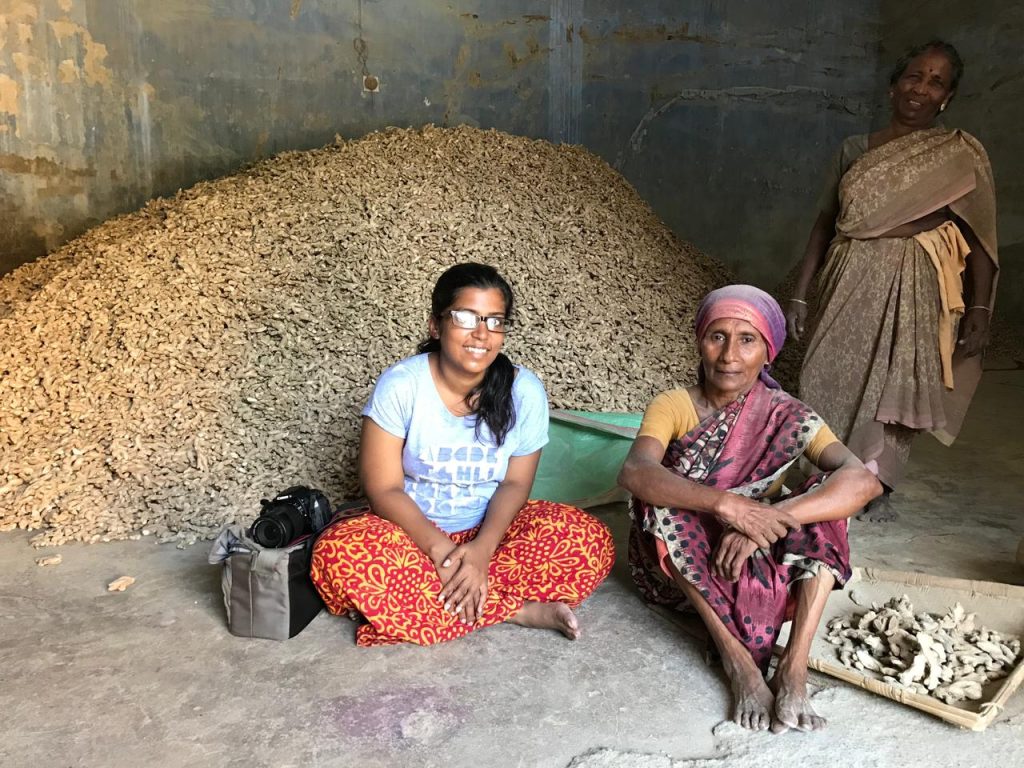Parkavi Kumar of ICRISAT – Climate Professional Interview – Clidemy Careers
Clidemy Careers is a new section at Clidemy where we post inputs and insights on career opportunities opening up in the fast growing climate action sector.
The Climate Professional Interview is one avenue through which we provide the insight. In this, we interact with professionals working in the climate action domain to get answers to questions that will be of value to many others who are seeking a career in climate.
We are pleased to present this Climate Career Professional Interview with Parkavi Kumar, Senior Communication Officer (Asia Program) at ICRISAT, a leading organization that undertakes agricultural research for rural development.
ICRISAT stands for International Crops Research Institute for the Semi-arid Tropics. That’s a long name, but the organization also does a lot to justify the length! Their efforts to enhance the value of the farmer ecosystem are anchored around reducing poverty, hunger, malnutrition and environmental degradation, fighting climate change, enhancing women’s empowerment and accelerating digital/smart farming. It’s facility located at Patancheru on the outskirts of Hyderabad serves as a world repository for the collection of germplasm of the 11 crops: sorghum, pearl millet, chickpea, pigeonpea, groundnut, finger millet, foxtail millet, little millet, kodo millet, proso millet and barnyard millet.
That’s a lot of work, wouldn’t you agree?
Team Clidemy thanks Parkavi for her insights.

Tell us a bit about your educational background
I have a bachelor’s degree in Microbiology and a master’s degree in Biotechnology. Currently, I am pursuing a certification in science communication.
What is your current role?
I work as a Senior Communication Officer (Asia Program) at the International Crops Research Institute for the Semi-Arid Tropics (ICRISAT).
What are the different types of climate roles you have done so far?
I have been involved in market research, knowledge management, and communications in the ESG sector.
How does a typical week in your work look?
ICRISAT is dedicated to developing a range of future-ready crops and solutions across Asia and Africa to support dryland farmers. This involves activities such as developing drought-tolerant crop varieties for India and promoting climate-resilient agricultural practices.
In a typical week as part of the communication team, I receive updates from eight regional offices spread across East and West Africa. These updates can include narratives from farmers, scientists, partners, published research papers, or policy briefs. Our team collates and converts these scientific documents into news and other communication materials to reach a wider audience.
What are the components of your work that excite you the most?
I find the ability to communicate with various stakeholders, ranging from policy makers to smallholder farmers, particularly exciting. I also enjoy working with different mediums of communication, such as podcasts, videos, infographics, in addition to print media.
What types of skills are specifically required in your type of role?
The ability to interpret science and scientific innovations and communicate them in a language that is easily understandable to a broader audience is essential.
What types of educational background would roles such as yours require?
Roles like mine would typically require either a degree in journalism or mass communications with a background in science literacy, or a science degree with proficiency in media literacy.
Personally, I belong to the latter category. However, having an educational background alone is not sufficient for this type of role. Working knowledge of new communication tools, agriculture data platforms, and toolkits is imperative to create accurate and engaging content.
What would your suggestions be for students or professionals keen to have careers such as yours?
Here are my suggestions for students or professionals interested in pursuing careers like mine in science communication and climate roles:
- Obtain a relevant educational background: It is crucial to acquire a combination of scientific knowledge and effective communication skills.
- Gain practical experience: Look for internships, volunteer opportunities, or part-time positions in organizations working on climate-related projects or science communication. This hands-on experience will help you understand the dynamics of the field and develop valuable skills.
- Network and collaborate: Build connections with professionals already working in the field. Collaborating with experts and like-minded individuals can open doors to new opportunities and provide valuable guidance.
- Be adaptable and open-minded: The field of climate tech and science communication is continuously evolving. Be open to learning new skills, embracing emerging technologies, and adapting to changing trends.
What are your suggestions for professionals from sectors unrelated to climate tech to get a foothold in your sector?
Every sector should be sensitive to global challenges. There is nothing that is unrelated. Everything is connected to society and the environment around us. To stay relevant, professionals from every sector must be aware of global challenges, including climate change.

